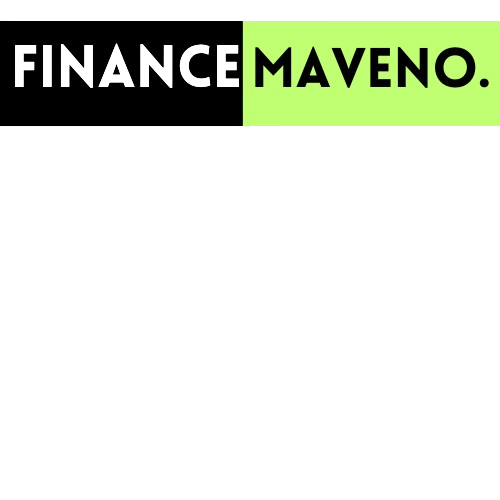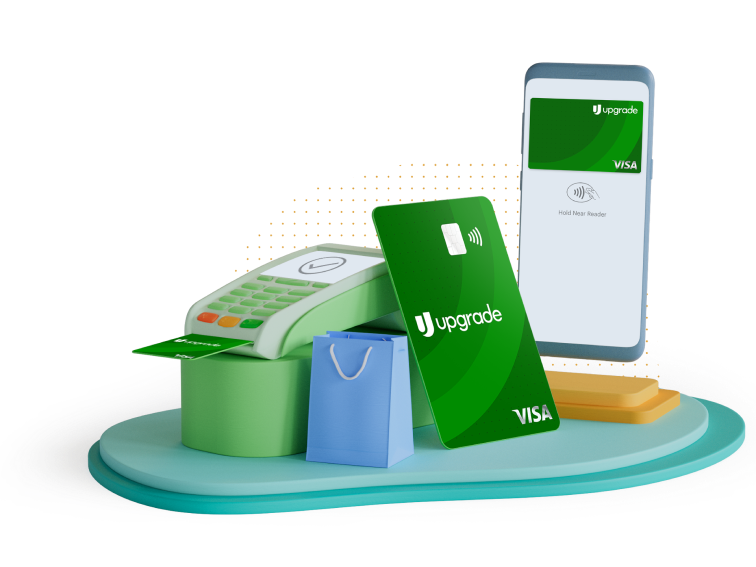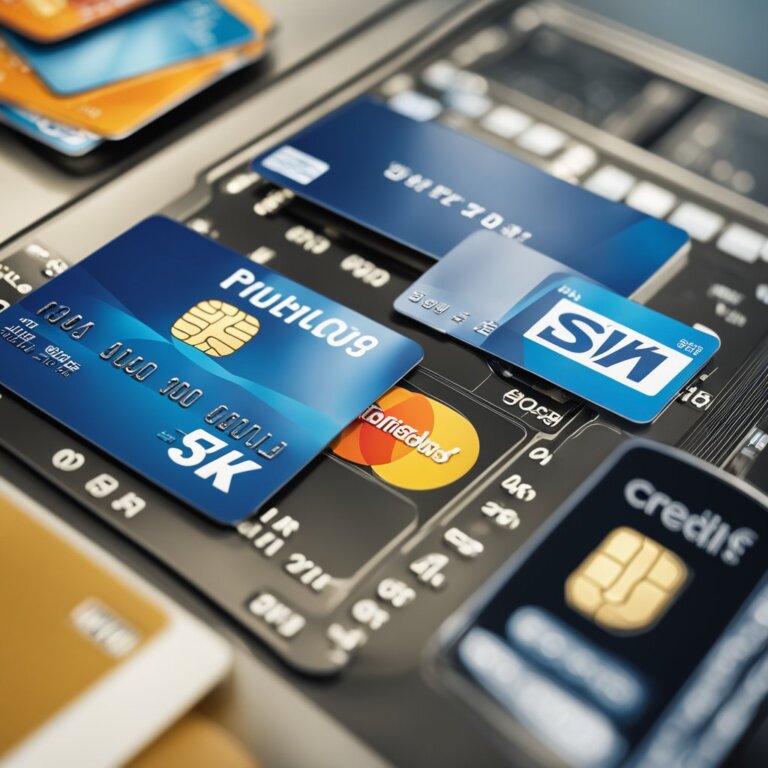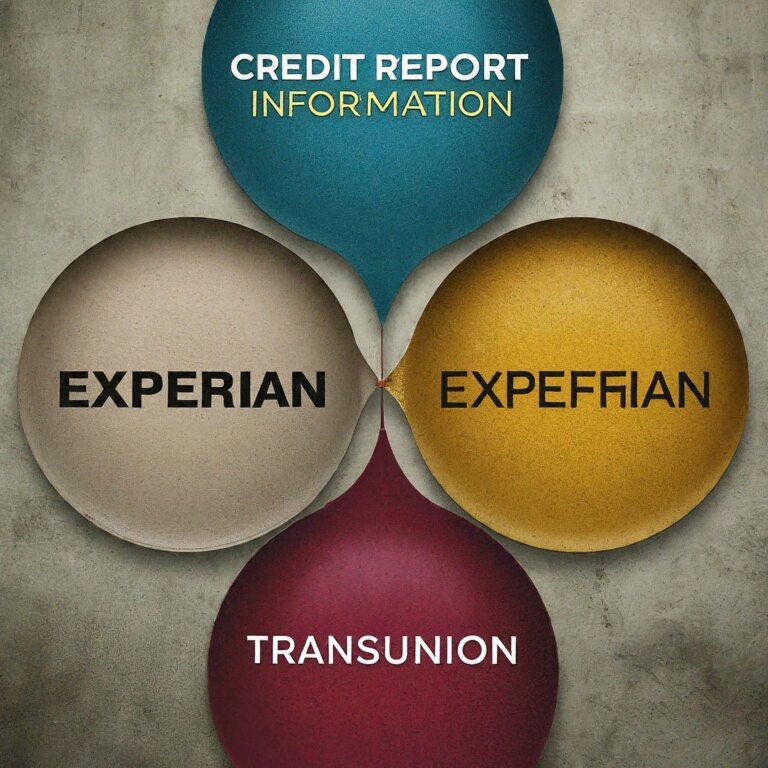How to Check Your Credit Score For Free – Step By Step
In this post I will show you how to check your credit score.
Lets dive right in!

GOKAPITAL BUSINESS LOANS
BUSINESS
LENDING MADE SIMPLE!
Secure online application only takes minutes.
Credit scores serve as a numerical summary of your credit history, reflecting your reliability as a borrower.
Lenders, insurers, and even employers examine this score.
They do this to assess potential risk and determine your qualifications for loans, credit cards, and more.
A high credit score can open doors to favorable interest rates, which translates to lower borrowing costs over time.

ONLINE PERSONAL LOANS MADE EASY.
LOW RATES, EASY PROCESS!
Loan Amounts: $25,000 up to $500,000 | Terms: 1 to 5 years with monthly payments | Rates: Range from 6%-18%
Conversely, a low score might restrict access to credit or saddle you with steep rates.
Regularly checking your credit score is vital for maintaining financial health.
It is also necesaary for taking timely actions for improvement, especially considering the ever-changing nature of credit reports.
KEY TAKEAWAYS –
- FICO score significance: Understanding your FICO score is crucial as it influences credit approval and interest rates.
- Discover Credit Scorecard: The Credit Scorecard from Discover is a free tool. For monitoring your credit score securely and boosting credit health.
- Personal finance empowerment: Regularly checking and managing your FICO score aids in making informed financial decisions and achieving financial freedom.
See your FICO® Score on the Discover mobile app, online and statements.
It won’t hurt your credit.
The FICO® Score you get from Discover is based on key categories like payment history, amounts owed,…
…length of credit history, new credit, types of credit, and other information in your TransUnion® credit report.
Checking your FICO® Credit Score for free will alert you to issues you need to correct to help your credit score.
How to check your FICO® Score for free
In summary you can check your credit score for free via the Discover card.
Discover cardmembers can get their free Credit Scorecard with your FICO® Credit Score, and more.
Viewing your Credit Scorecard will never impact your FICO® Score.
If you are not a Discover cardmember, go to Discover.com.
You can easily see if you’re pre-approved for a Discover card with no impact to your credit score.
Why should you check your FICO® Score?
90% of top lenders use FICO® Credit Scores, including Discover.
That’s why Discover provides a FICO® Score instead of any other type of credit score.
Lenders will use your credit score to determine your credit risk and creditworthiness.
You can use your score to help you prepare for the future, stay on top of your credit,…
or avoid surprises—so it’s a good idea to review your score regularly.
How is your FICO® Score calculated?
Your FICO® Score is calculated using the information in your credit report from a specific point in time and summarizes your risk to lenders.
FICO® Scores consider the following five categories when determining your credit rating.
The breakdown below shows the impact of these score factors,…
…but your individual score may give some factors more importance based on the information in your credit report.
These are –
Payment history – 35%
Credit utilization – 30%
Length of credit history15%
New credit opened – 10%
Types of credit you have – 10%
Why did your FICO® Score change?
The FICO® Score Discover provides is based on the information in your TransUnion® credit report at a specific point in your credit history.
As the information on your credit file changes, your score may also change.
FICO® Scores change by 20 points or less, or don’t change, for 88% of people each month.
What is a FICO Score?
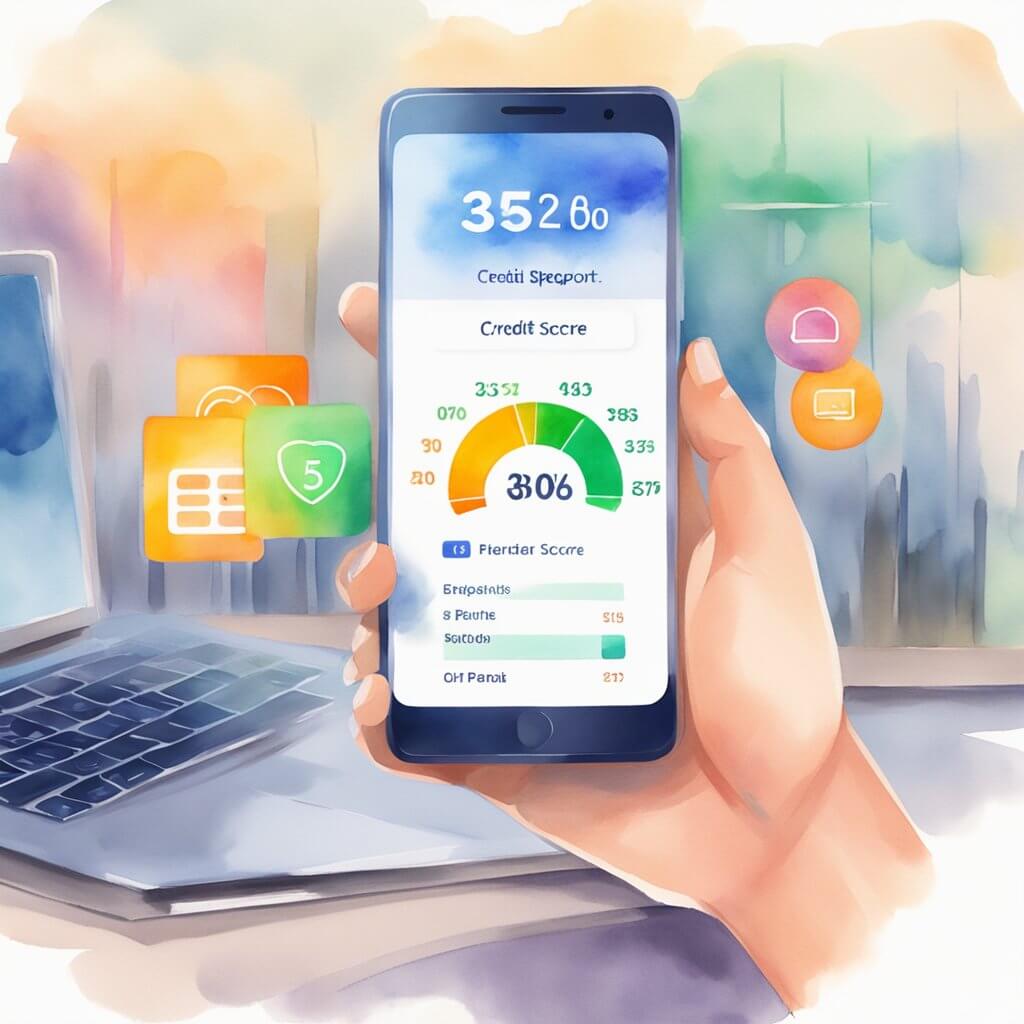
A FICO score is established by the Fair Isaac Corporation.
It is a type of credit score that creditors use to gauge an individual’s credit risk.
My interpretation of this three-digit number, ranging from 300 to 850, guides potential lenders in their decision-making process.
A higher score suggests to lenders I am less of a risk, potentially leading to better borrowing terms.
Unlike other credit scores which might employ different scoring models, the FICO score is the most widely recognized and used.
It differs mainly due to its unique algorithm, which considers five distinct areas of my credit report.
These areas are payment history, amounts owed, length of credit history, new credit, and types of credit used.
Each element contributes a different weight to my overall score.
Thus making the FICO score a comprehensive reflection of my credit health.
Opting for a FICO score check provides me with valuable insight since.
Many lending institutions rely on it for credit decisions.
Why FICO Scores Matter
- Lending Decisions: Loan issuers and financial institutions rely heavily on FICO scores to make informed lending decisions. A high score can mean easier access to loans and credit products.
- Interest Rates: Your FICO score helps creditors gauge risk associated with lending you money. Thus, a better score often translates to lower interest rates, saving you money over time.
- Credit Approval: Prospective lenders use your FICO score to assess your creditworthiness. A robust score increases your chances of credit approval for mortgages, auto loans, and credit cards.
- Rental Agreements: Landlords frequently check FICO scores to determine reliability in paying rent. A strong score can smoothen the application process for rentals.
- Insurance Premiums: Some insurance companies consider FICO scores when setting premiums. A better score could mean lower insurance costs.
- Credit Limit Decisions: Financial entities often look at your FICO score to determine the credit limit on new accounts. Higher scores may lead to higher available credit.
Discover Credit Scorecard: An Overview Of How to Check Your Credit Score
This is a tool that offers a secure way to check my FICO score for free.
I can check my score even if I’m not a Discover customer.
This service allows me to stay informed about my credit health without impacting my credit score.
It involves a soft credit inquiry, which is not factored into credit scoring models.
Discover’s offering includes more than just the naked numbers.
It provides a snapshot of the data from my Experian credit report that affects my FICO score.
This is vital for me to understand where I stand credit-wise and to plan personal finance moves.
With this tool, I get a clearer picture of my credit standing in the FICO score range.
This is key to financial planning and credit score management.
It’s also reassuring that Discover places a high emphasis on data security.
They ensure my personal information is protected during each credit score check.
In a market crowded with credit score services, Discover Credit Scorecard stands out by focusing on credit score education.
It helps me grasp what my score means through a FICO score breakdown.
Furthermore it teaches me about the factors influencing my score.
This is an empowering feature that assists me in making informed financial decisions and planning for credit score improvement.
Eligibility for Discover Credit Scorecard
- Availability to Everyone: You don’t need to be a Discover customer to take advantage of the Discover Credit Scorecard.
- No Cost Requirement: The service is completely free. It offers you a straightforward way to check your FICO score without any hidden fees.
- Registration Process: To use the service, you must sign up and provide some personal information. This i to confirm your identity, which helps in keeping your credit data secure.
- Age Restrictions: You need to be at least 18 years old to be eligible for Discover Credit Scorecard.
- US Residency: Users must be a resident of the United States. They must have a valid Social Security number to access their FICO score through the service.
- Credit File Criteria: You must have a credit file with sufficient information to calculate a FICO score. This is because a very limited or nonexistent credit history may not suffice.
- Frequency of Use: There are no limitations on how often you can check your credit score. It allows for regular monitoring of credit health.
Benefits of Using Discover Credit Scorecard
- Free Credit Score Access: You can check your FICO score without cost, eliminating the need for paid services or subscriptions.
- No Discover Card Required: You don’t need a Discover card to use this service. It’s available to everyone regardless of whether they are Discover customers.
- Regular Updates: Your credit score is updated monthly, allowing you to track changes and trends over time.
- Credit Score Breakdown: Gain insights into the key factors affecting your score, which can guide your credit score improvement efforts.
- Dark Web Monitoring: Benefit from an extra layer of security with automatic alerts. This is if your Social Security number is found on any of thousands of Dark Web sites.
- Security and Privacy: The service is secure, using bank-level encryption to protect your information and ensure privacy.
- Credit Monitoring Alerts: Receive notifications for new credit inquiries, which can help detect potential fraud early.
- Educational Resources: Discover provides access to resources that can educate you on credit management and financial planning.
- Impactful Credit Score Improvement Tips: Receive personalized tips. Receive suggestions for ways to improve your credit score based on your specific credit data.
How to Register for Discover Credit Scorecard
- Navigate to the Discover Credit Scorecard website: Start by visiting the official website dedicated to the Discover Credit Scorecard service.
- Click on ‘Sign Up Now’: Look for the option that says ‘Sign Up Now’. Next click it to begin the registration process.
- Fill out the registration form: You’ll be prompted to enter personal details. These detais are your name, address, social security number, and date of birth to verify your identity.
- Create login credentials: Choose a username and a secure password that you’ll use to access your account in the future.
- Set up security questions: Select questions and provide answers that only you would know. This will enhance the security of your account.
- Agree to terms: Review the terms and conditions and the privacy policy. Agree to them by checking the appropriate box.
- Complete registration: Once all required fields are filled, submit your registration to create your account.
- Confirm your email: Check your email for a confirmation message from Discover and follow the instructions to verify your account.
Upon completion of these steps, you will have access to your Discover Credit Scorecard account.
Then you can begin monitoring your FICO score.
Accessing Your FICO Score
- Visit Discover Credit Scorecard Website: After completing registration, proceed to the Discover Credit Scorecard website to log in.
- Secure Login: Enter your User ID and password with confidence, as your information is protected by advanced security measures.
- Navigate to Your Dashboard: log in. Then locate and select the option for viewing your FICO score on your account dashboard.
- View Your Score: Your current FICO score will be displayed, giving you an immediate sense of your credit health.
- Examine Score Details: For a deeper understanding, explore the underlying factors contributing to your score. Factors which are conveniently broken down for you.
- Check for Updates: Return to the website regularly. Your score is updated periodically to reflect changes in your credit activity.
- Utilize Tools and Resources: Take advantage of credit score education tools. Also the personalized recommendations offered by Discover to better manage your credit profile.
Understanding Your FICO Score
The FICO score, which stands between 300 to 850, is a measure of credit risk.
A score above 670 is generally considered ‘good’, while anything below 580 is regarded as ‘fair’ or ‘poor’.
When viewing my score through Discover’s Credit Scorecard, I focus on key areas for insight into my credit health.
- Payment History: This shows if I’ve made credit payments on time. Missed payments can drag my score down.
- Amounts Owed: It’s good to keep balances low compared to credit limits, as high utilization can hint at overextension.
- Length of Credit History: A long history of responsible credit use can work in my favor, contributing to a higher score.
- New Credit: Opening several new accounts in a short period can signal risk, which might lower my score.
- Credit Mix: Diverse types of credit, like credit cards, auto loans, and mortgages, can show that I’m capable of handling various credit products.
Discover Credit Scorecard also offers a comprehensive breakdown and historical view that gives me context on how my actions affect my score.
By understanding these elements, I can better manage my credit and work towards credit score improvement.
Factors that Affect Your FICO Score
- Payment History (35%): Timeliness of payments has the greatest impact on your FICO score. Late payments, bankruptcies, and defaults can significantly lower your score.
- Credit Utilization (30%): This represents the ratio of your credit card balances to the limits. Keeping this ratio below 30% is advised to maintain a good score.
- Length of Credit History (15%): A longer credit history provides more data and can positively influence your score, so keep old accounts open.
- New Credit (10%): Opening several new accounts in a short period can be risky, thus potentially lowering your score.
- Credit Mix (10%): Having a variety of credit types, like credit cards, installment loans, and retail accounts, can positively affect your score.
Improving Your FICO Score
- Review Your Credit Report: Identify any discrepancies or errors by obtaining a free annual credit report from the authorized website AnnualCreditReport.com and contact the relevant credit bureau to address mistakes.
- Pay Bills On Time: Display fiscal responsibility by making timely payments on all accounts, including credit cards, loans, and utility bills, as payment history is a significant component of your FICO score.
- Keep Balances Low: Maintain credit card balances well below their limits, ideally using less than 30% of available credit, to optimize your credit utilization ratio.
- Avoid Opening Multiple Accounts Quickly: Protect your score from potential dips by applying for new credit sparingly, especially if you have a shorter credit history, as each application can result in a small temporary drop.
- Lengthen Your Credit History: Opt for keeping older accounts open as they contribute positively to the length of your credit history, unless there’s a compelling reason to close them such as high fees.
- Blend Credit Types: Responsibly manage a mix of credit types, such as installment loans and revolving credit, demonstrating your ability to handle diverse financial obligations.
- Limit Hard Inquiries: Mind the number of hard inquiries on your credit report, as these are triggered by applications for new credit and can slightly reduce your score. Soft inquiries, like checking your own credit, do not affect your score.
Frequency of FICO Score Updates
You can anticipate updates to your FICO score through the Discover Credit Scorecard about every 30 days.
This frequency ensures that you have a timely view of your credit health, based on the latest data from your credit report.
The regular updates also allow you to promptly notice and address any unexpected changes, keeping your credit monitoring proactive.
Nevertheless, some variations might occur, as the actual update depends on when Discover receives information from the credit bureaus.
In light of this, it’s a good habit to regularly log in to your account to check for the most current score.
Remember, staying on top of these updates is a key part of managing personal finances and planning future credit applications.
Privacy and Security
Rest assured, privacy and security are paramount when you use Discover Credit Scorecard to check your FICO score.
This service adheres to stringent data protection standards to safeguard your personal information.
Your sensitive data is encrypted using advanced security technologies, ensuring unauthorized parties cannot access it.
When you create an account, strong authentication methods are employed to verify your identity and prevent fraudulent activity.
Regular monitoring and system testing are conducted to maintain a robust defense against potential security threats.
Discover also provides you with the transparency you need, offering clear information on how your data is used and stored.
With these rigorous security protocols, you can confidently manage and understand your credit score without compromising your privacy.
Comparing with Other Credit Score Providers
- Exclusive FICO Score Access: You get the same FICO score that lenders use, not an educational score.
- No Credit Card Required: Unlike some services, you don’t need a Discover card to sign up.
- Regular Updates: Your score is updated every 30 days upon logging in, providing fresh insights.
- Detailed Score Analysis: You receive a detailed breakdown of the components affecting your score.
- Security and Privacy: Your personal information is secure with encryption protocols standard in the industry.
- Monitor Your Credit: Discover includes an option to track recent credit inquiries and accounts opened in your name.
- Customer Support: Discover provides U.S.-based customer service for inquiries and support.
- User-Friendly Interface: The sleek and intuitive design makes navigation and understanding your score easy.
Limitations and Considerations
- Specific Score Version: The FICO score provided might not be the version lenders use. Different industries use various FICO score models tailored to their needs.
- Limited Reporting Agencies: Discover Credit Scorecard obtains information from one credit bureau. Other bureaus may have different data affecting your credit score.
- Update Frequency: Updates to your FICO score on the platform may not be in real-time and typically happen monthly. This interval may not reflect recent changes to your credit report.
- Scope of Service: The Scorecard primarily offers your score and basic credit information. It’s not a comprehensive credit-monitoring service or a substitute for full credit reports.
- Credit Score Interpretation: Understanding the implications of your FICO score requires a solid grasp of credit factors. You might need further guidance to interpret and act on your score details.
- Personal Information: You must provide personal identification information to access the service. Protect your data by ensuring you use a secure connection.
- Tool Accessibility: The service is accessible online, which requires an internet connection; there’s limited access for those without reliable internet service or adequate digital literacy.
- Customer Support: You may encounter limited support issues. For complex credit situations, professional advice might still be necessary.
The Impact of Credit Inquiries on Your FICO Score
A credit inquiry, or credit pull, occurs when there is an inquiry into your credit report.
There are two types of credit inquiries: soft and hard.
Soft inquiries, also known as soft pulls, do not affect your credit score.
These are inquiries that occur when you check your own credit score or credit report,…
…when a lender or credit card company pre-approves you for an offer, or when an employer checks your credit as part of a background check.
Soft inquiries do not require your authorization and are not visible to other potential creditors.
Hard inquiries, on the other hand, can impact your credit score.
These are inquiries that occur when a lender or credit card company checks your credit report as part of an application process for a loan, mortgage, or credit card.
Hard inquiries require your authorization and are visible to other potential creditors.
Too many hard inquiries in a short period can be viewed as a negative factor by lenders, as it can indicate that you are seeking new credit repeatedly.
Using the Discover Credit Scorecard does not affect your credit score, because it is considered a soft inquiry.
This means you can check your credit score as often as you like without worrying about it negatively impacting your credit.
It’s actually beneficial to regularly monitor your credit score and report to ensure accuracy and to catch any potential signs of fraud or identity theft early on.
Managing Your Credit Score Long-Term
- Review Your Credit Report Regularly: I make it a point to check my credit report at least once a year. This helps me identify any errors or fraudulent activity that could harm my credit score.
- Pay Bills on Time: I always strive to pay my bills before their due date as on-time payments are a critical factor in credit scoring.
- Keep Debt Levels Low: I maintain low credit balances and avoid overextending myself to keep my credit utilization ratio favorable.
- Limit New Credit Applications: When I need to open a new account, I do so sparingly. Multiple credit inquiries in a short period can lower my score.
- Build a Diverse Credit Mix: I diversify my credit with different types of accounts, such as installment loans and revolving credit, which can have a positive effect on my credit score if handled responsibly.
- Stay Informed About Your Credit Score Factors: Understanding the factors that affect my FICO score, I focus on areas that need improvement.
- Address Delinquencies Promptly: If I miss a payment, I act quickly to bring the account current to minimize the impact on my credit score.
- Consider Tools for Credit Monitoring: I use services like credit monitoring to keep tabs on changes to my credit profile and score.
- Practice Responsible Credit Habits: Simple habits such as not spending beyond my means and keeping old accounts open contribute to a healthy credit history.
- Seek Professional Advice When Needed: If I’m uncertain about credit decisions, I consult with a financial advisor to steer my credit management in the right direction.
When to Check Your FICO Score
- Before applying for new credit: You should review your FICO score to gauge your eligibility and potential interest rates.
- After paying off debt: Checking your score can reveal improvements from reduced credit utilization.
- When planning major purchases: Access your score months in advance to rectify any issues before seeking financing.
- Annually, at minimum: Annual reviews help you stay informed of your credit health and catch any inaccuracies or fraud.
- Following a credit score drop alert: If you’re enrolled in credit monitoring and receive a notification, it’s wise to verify the change.
- Before making a large financial decision: Your score can impact terms on loans, insurance premiums, or renting, so check it beforehand.
Maximizing the Potential of Your FICO Score
- Negotiate Lower Interest Rates: You can use your strong FICO score to bargain for reduced interest rates on loans and credit cards. This may save you significant money over time.
- Access Premium Credit Cards: A high FICO score may qualify you for credit cards that offer better rewards, cash back, and travel perks. Make sure to review these options to optimize your spending.
- Secure Favorable Loan Terms: When shopping for loans, your good credit score can be a bargaining chip to secure preferable terms like longer repayment periods or lower fees.
- Refinance Existing Debt: With a strong credit score, refinancing mortgages, auto loans, or student loans could lead to more favorable conditions, saving you money over the loan’s life.
- Rent with Ease: Landlords often check credit scores. A good score can make renting simpler and even negate the need for a co-signer.
- Purchase Insurance at Lower Premiums: Some insurers use credit scores to set premiums. A high score might lead to lower insurance costs.
- Start or Expand a Business: If you’re starting or growing a business, a good credit score can help in securing financing more easily and at better rates.
- Improve Job Prospects: Employers in financial sectors may check credit scores. A strong score can boost your job candidacy or prospects for a promotion.
The Journey to Financial Freedom Begins with Knowledge
Embarking on the journey to financial freedom starts with a solid grasp of personal credit health.
By fully comprehending one’s credit score, one wields the power to make informed decisions that can open doors to better loan terms and more favorable financial opportunities.
With Discover Credit Scorecard, gaining this essential knowledge is not only simple but also secure and free,…
…granting you the advantage of credit score management without added costs.
Empowerment through understanding is key, and tools like Discover Credit Scorecard are instrumental in demystifying the complexities of credit reports and scores.
With it, you can confidently track your FICO score’s fluctuations, discerning what factors contribute to changes,…
…and how you can adjust your financial behaviors for continuous improvement.
Such vigilance ensures that you remain on course towards attaining and maintaining a robust credit profile, ultimately steering you towards financial health and independence.
Whether it’s aiming for a higher credit score range or just keeping tabs on your credit status, every step towards credit score education lays a brick on the path to financial freedom.
Constant access to your FICO score, coupled with the comprehension of its implications,…
…not only prepares you for upcoming financial ventures but also instills a sense of control over your economic destiny.
It’s a proactive step—mere access becomes a cornerstone of financial strategy, securing your financial future while you navigate the present.
FAQ
Can I check my credit score for free? Yes, you can check your credit score for free. Many services offer free credit score checks, including Discover Credit Scorecard, which provides your FICO score without any cost to you.
Will checking my credit score affect it? Checking your own credit score is considered a soft inquiry and will not affect your credit score. This is different from hard inquiries, which may occur when lenders check your credit for approving loans or credit cards.
How often should I check my credit score? Regular checks can help you stay on top of your credit health. You might want to check it monthly or at least a few times a year, especially before making any major financial decisions.
What is the difference between a FICO score and other credit scores? While FICO scores are used by many lenders, there are other credit scores available, such as VantageScore. They may use different criteria or scoring models, so scores may vary across services.
What is a good credit score? Typically, a FICO score above 670 is considered good. Scores above 740 are very good, and scores above 800 are exceptional.
How can I improve my credit score? You can improve your credit score by making payments on time, keeping credit card balances low, managing various types of credit responsibly, and avoiding too many hard inquiries in a short time frame.
Is the information I provide to check my credit score secure? Reputable services like Discover Credit Scorecard employ robust security measures to protect your personal information. Always ensure you’re using a secure platform for checking your credit score.
